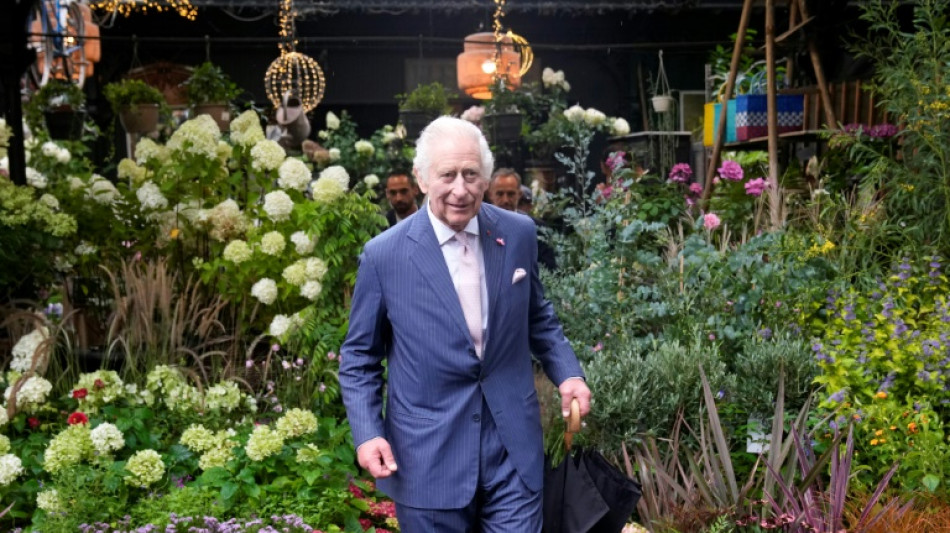King Charles's France trip closing with climate focus / Photo: Christophe Ena - POOL/AFP
King Charles III on Friday puts the environment at the heart of the final day of his state visit to France, learning about climate-induced wildfires and visiting a sustainable vineyard in the heart of wine country.
The 74-year-old British head of state -- a lifelong environmentalist -- wraps up three days of diplomacy aimed at forging closer cross-Channel links after Brexit with a trip to the southwestern city of Bordeaux.
Charles, accompanied by his wife Queen Camilla, 76, had been due to visit in March but civil unrest over unpopular pension reforms forced the trip to be postponed at the last minute.
His rescheduled tour, including a ceremonial welcome at the Arc de Triomphe, a glittering state dinner at the Palace of Versailles, and a landmark address at the Senate, has been largely well-received.
Even in staunchly republican France, there have been cries of "vive le roi!" (long live the king!) and his speech to the Senate that mixed English and French was given a standing ovation by lawmakers.
The warmth of his relationship with President Emmanuel Macron has been clear, with Charles setting a slightly more informal atmosphere than would have been the case under his late mother Queen Elizabeth II.
Bordeaux is well-placed to illustrate the point hammered home throughout the visit about Britain and France's shared personal, political and cultural history.
It became a British possession in 1152, when the future English king Henry II married Eleanor of Aquitaine, effectively beginning three decades of English dominance in the region, until the end of the Hundred Years' War in 1453.
The British influence remains: some 39,000 British expats live in Bordeaux -- the highest number in France.
- Kindred spirit -
On Thursday, Charles called for a new Franco-British partnership for the environment -- an alliance for sustainability -- as part of a wider effort to repair frayed political ties caused by Brexit.
Speaking to lawmakers in the upper chamber of parliament -- a first for a British monarch -- he notably called climate change "our most existential challenge of all".
Some commentators in the UK interpreted that as coded criticism of Prime Minister Rishi Sunak, who this week rowed back on the government's net zero commitments.
But Charles has for a long time warned about the need to protect the environment for future generations, and he praised efforts by governments in both London and Paris for making moves to address the issue.
Before it was fashionable, he created an organic garden at his Highgrove estate in western England and has long published his household's carbon footprint.
The Aston Martin DB6 he has owned since 1970 has been converted to run on bioethanol from surplus English white wine and whey from cheese-making.
In Bordeaux, he will find a kindred spirit, Pierre Hurmic, the Green Party mayor who declared a climate emergency after his surprise 2020 election victory.
After engagements in the city, including a celebration of defence ties between the two NATO allies on a British frigate, Charles visits a research centre looking at how forests are adapting to climate change.
Huge fires, fuelled by drought and high temperatures, ripped through the Gironde region near Bordeaux last year.
His last stop before heading home is a visit to Chateau Smith Haut Lafitte vineyard, which has become a model of sustainable practice.
The vineyard, founded in the 14th century and named after Scottish former owner George Smith, uses organic compost and carbon dioxide recycling technology, shunning pesticides and herbicides.
D.Wason--BD
